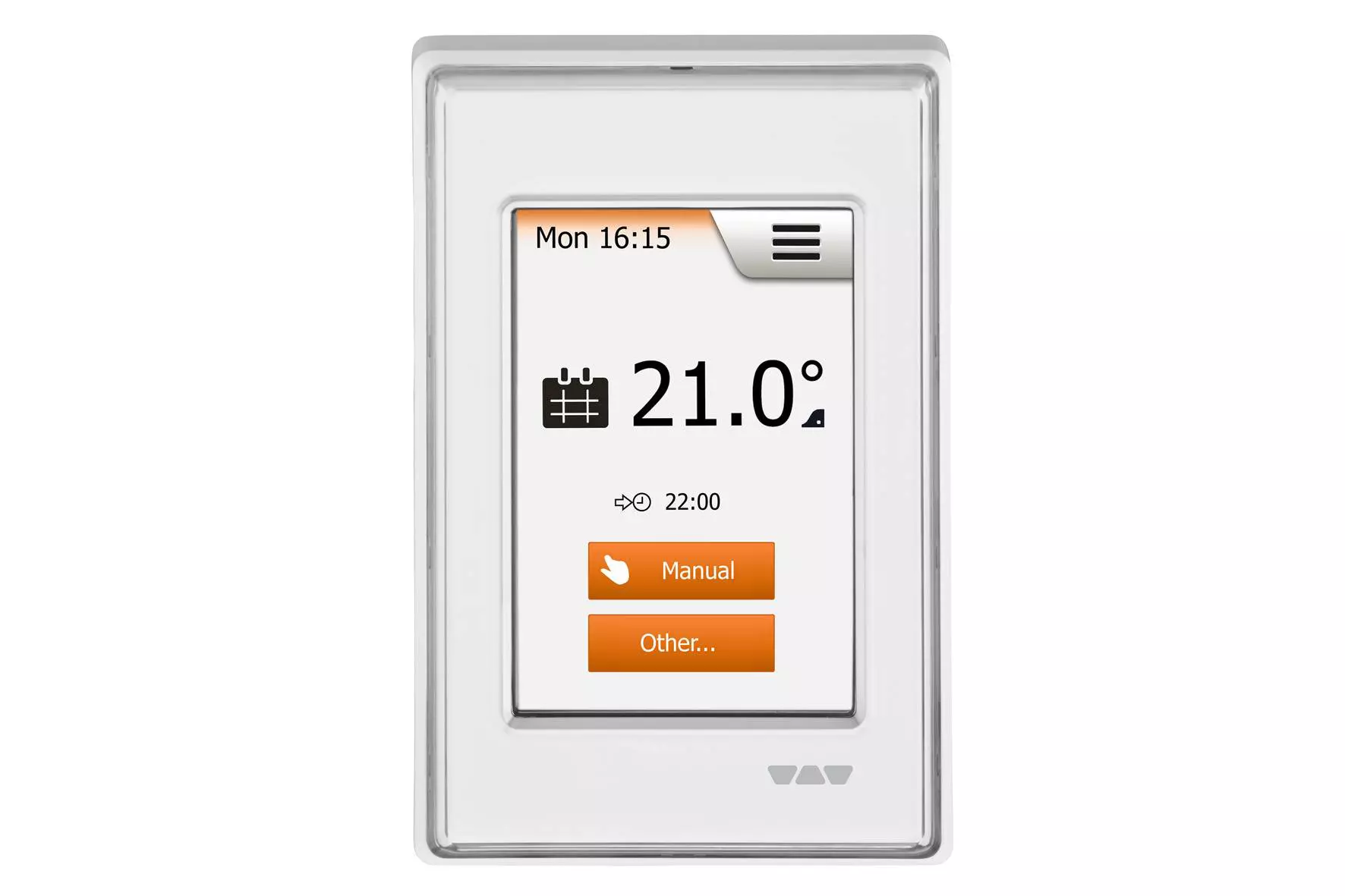Positioning the floor sensor
Variant A: The floor sensors are positioned directly in the newly installed uncoupling mat Schlüter-DITRA-HEAT. Since the floor sensor is embedded directly in the thin-bed tile adhesive and cannot be replaced, the installation must include a spare sensor (a second sensor is included in thermostat scope of supply as a spare sensor). Place the sensors in the centre between two heating cable loops.
Variant B: Position the floor sensor of the thermostat in the conduit with the sensor sleeve directly in the floor below the DITRA-HEAT uncoupling mat. Cut an opening in the DITRA-HEAT mat in the area of the sensor sleeve. Insert the sensor into the conduit and slide the sleeve over it (conduit and sensor sleeve are available as an installation set, Art.-No. DH EZ S1).
To guarantee an optimal temperature transition from the heated area to the sensor, no insulation material may be located between the sensor sleeve and DITRA-HEAT. In this case, cut an opening in the insulation in the area of the sensor sleeve.
Note: Before embedding the sensors in the thin-bed tile adhesive, measure the resistance values, e.g. with the cable tester DITRA-HEAT-E-CT, and compare them with the values listed in the thermostat installation instructions.
- The substrate must be level, load-bearing and free of components that may inhibit bonding. Any necessary levelling work must be completed before installing DITRA-HEAT.
- The selection of the adhesive for installing DITRA-HEAT depends on the substrate.
The adhesive must bond with the substrate and mechanically set in the DITRA-HEAT anchoring fleece. A dry setting thin-bed tile adhesive is suitable for most substrates. The adhesive should preferably have a consistency suitable for fluid beds. Review any potential material incompatibilities beforehand. If using covering materials with a side length exceeding 30 cm, we recommend a quick-setting tile adhesive with crystalline water binding capacity for fast curing and drying of the mortar.
- Apply a suitable thin-bed tile adhesive on the substrate with a notched trowel (6 x 6 mm). To achieve better initial adhesion for installation in wall areas, we recommend applying a contact layer on the underside of DITRA-HEAT.
- Embed the DITRA-HEAT mats, which must have been cut to size beforehand, into the installed adhesive with the anchoring fleece facing down. Immediately press them in place with a float or roller, working in a single direction. The curing time of the adhesive must be observed. For efficient installation of product rolls, precisely align DITRA-HEAT and keep the material stretched with light tension when placing it on the substrate.
The EasyCut gridlines minimise the curling memory. Mats are recommended for wall applications for easier handling. The mats or membranes are installed with closely abutting joints.
- To prevent any damage to the installed DITRA-HEAT material or detachment from the substrate, protect the area from mechanical stresses, e.g. by setting out running boards (particularly in the centre areas used for material transport).
Thermostat:
The heating cables of the DITRA-HEAT system may only be operated with DITRA-HEAT-E thermostats.
Further information on installing the heating cables and installing and setting up the thermostat can be found in the respective installation instructions.


